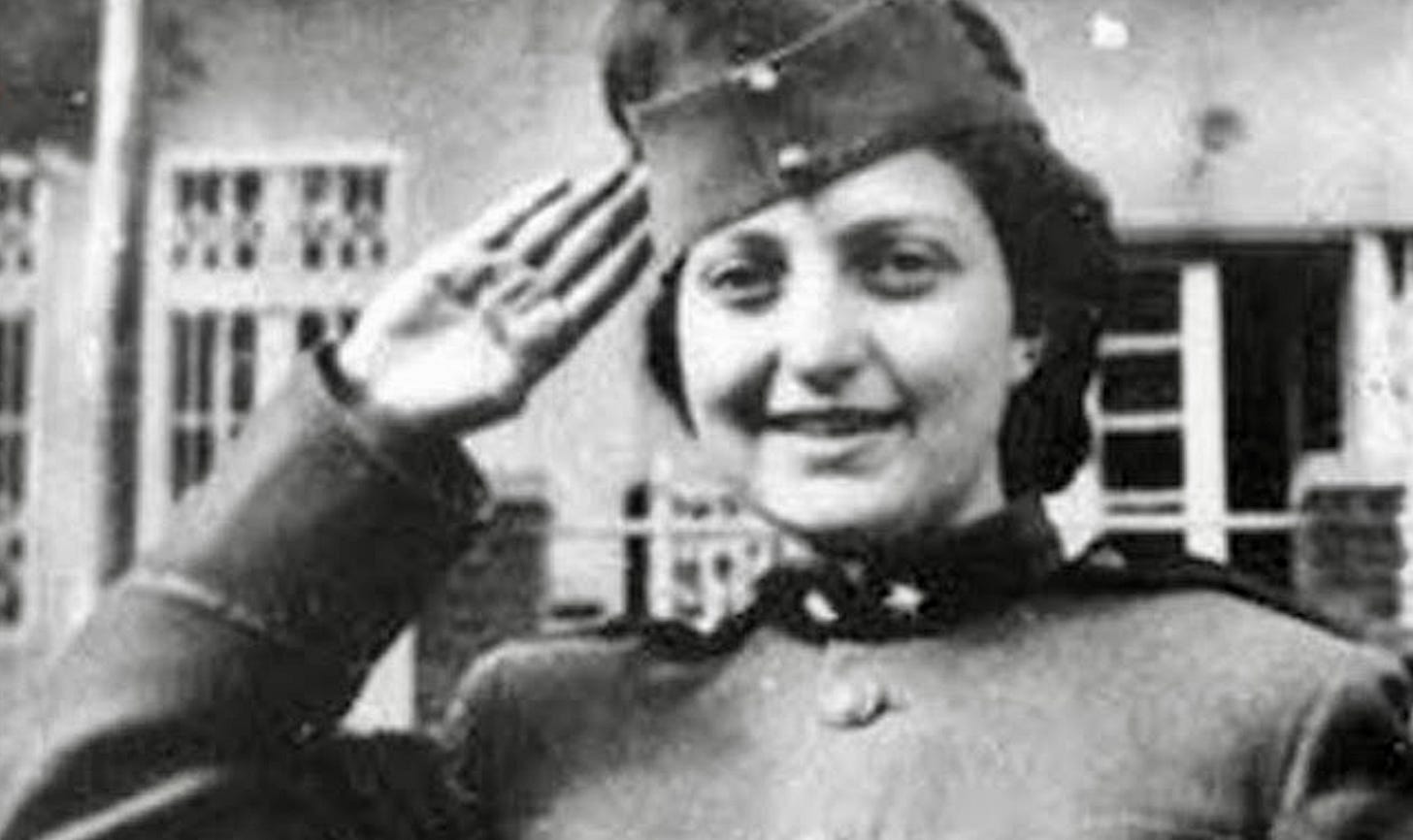A Braver Jew You'll Never Find
“Eighty years ago today, a mighty young heart was executed for daring to rescue her fellow Jews. Hannah Szenes was a poet long before she was a parachutist. Today we celebrate her words and deeds."
By Michael Golden
Hannah Senesh looked out through the bars of her prison cell in Hungary and saw her mother Catherine across the way. The year was 1944, and 22-year-old Hannah had been captured after parachuting into neighboring Yugoslavia on a secret Haganah mission to work with the British Army to rescue European Jews.
Hannah motioned to her mother and the other prisoners, pointing out that she was not forced to wear a yellow Jewish star on her clothing like they were, since she was no longer a Hungarian citizen. One of Catherine’s cellmates wrote in the air that she was lucky not to be branded. Hannah immediately drew a Jewish star on the window glass behind the bars. It remained there for weeks.
The heroic story of Hannah Senesh and her fierce love of Jewry and the promise of Israel all began when she was just a child at a private Protestant school in Budapest. While in the 5th grade, soon after being elected to a literary post at the school, she was informed she could not keep it because she was Jewish. They told her a new election had been scheduled.
More experiences like that one would contribute to shaping the teenager that Hannah would become. When she was 17, she wrote in her diary:
“I’ve become a Zionist. People, events, times, have all brought me closer to the idea. One needs something to believe in, to feel that your life has meaning. Zionism fulfills all this for me. I now consciously and strongly feel that I am a Jew. And I am proud of it.”
And Hannah backed up her words with actions. She learned Hebrew, joined the Maccabea (a Hungarian Zionist youth movement), and a year later emigrated to Palestine. One year after that, in 1941, Hannah volunteered to join the Jewish paramilitary group that would eventually become the Israel Defense Forces.
In 1943, Hannah and 32 others were selected out of 250 to go on active missions alongside British forces. On March 4, 1944, Hannah and two others parachuted into Yugoslavia near the Hungarian border. But once on the ground, they were surprised to learn that the Nazis had already occupied Hungary.
In a documentary about Hannah’s life called Blessed Is The Match — named after one of her poems about the Holocaust — filmmaker Roberta Grossman explains that Hannah’s fellow fighters did not want to cross over the border and continue the rescue. But she was adamant. In the last interview given in 2005 by her fellow parachutist, Rueven Dafni, he described Hannah in this way:
“I admired her courage, her determination, her stubbornness. You couldn’t change her mind once she made it up. Nothing helped.”
They went in. But the Hungarian gendarmes were waiting at the border and arrested them. Once Hannah’s British radio transmitter was found, her captors tied her to a chair, then whipped her and beat her for three days. She refused to tell them anything else but her name — even after they’d knocked out several of her teeth.
Hannah was eventually tried for treason against her native country by a phony court appointed by the ultra-nationalist Arrow Cross. The trial was a closed process; no records exist. But witnesses say that toward the end, Hannah had a “Joan of Arc moment.” She told her accusers that when the war finally came to an end, it would be they who’d be tried for their crimes against her and all Jews. Hannah told them that they were the real enemies of their country.
The “judges” actually postponed the verdict, only to eventually sentence her to death. Then they told Hannah that if she wanted clemency, she could plead for her life. Not a chance. She was just 23.
On November 7, 1944, Hannah Shenesh was murdered by a firing squad in Budapest. Her mother Catherine was sent on a death march to Austria — but escaped. She would eventually reunite with her son Giora in the land of Israel.

In 1950, Hannah’s body was carried throughout Israel for three days. She was laid to rest on Mount Herzl, along with her other fallen parachutists.
After the war, Hannah’s friends from the kibbutz discovered a suitcase containing all of her diaries and poetry. Her words and her deeds became symbols of the bravery and resistance embodied by the young State of Israel.
As I recently watched Gross’s documentary, there were so many of Hannah’s writings that struck me. But considering everything she risked and endured, there were four sentences in particular will not leave my memory soon:
“Do I believe in God? I don’t know. For me he’s more a symbol, an expression of the moral forces in which I believe. Despite everything, I believe the world was created for good and there’s nothing on earth so evil that a ray of light can’t seep through.”
So many have risked so much for so long to enable the Jewish people to survive. The kind of risks I am unlikely to ever know. So I and others tell the stories of Hannah and countless of our other brave ancestors.
It is a straight line: We are here because of them.
MICHAEL GOLDEN is the Editor-in-Chief of JEWDICIOUS.
From unpacking history and politics to navigating the nuances of family and personal relationships to finding the human angle on sports and entertainment — plus our unsparing take on what’s happening in the Jewish world — the canvas at JEWDICIOUS is limitless! JOIN US!!






